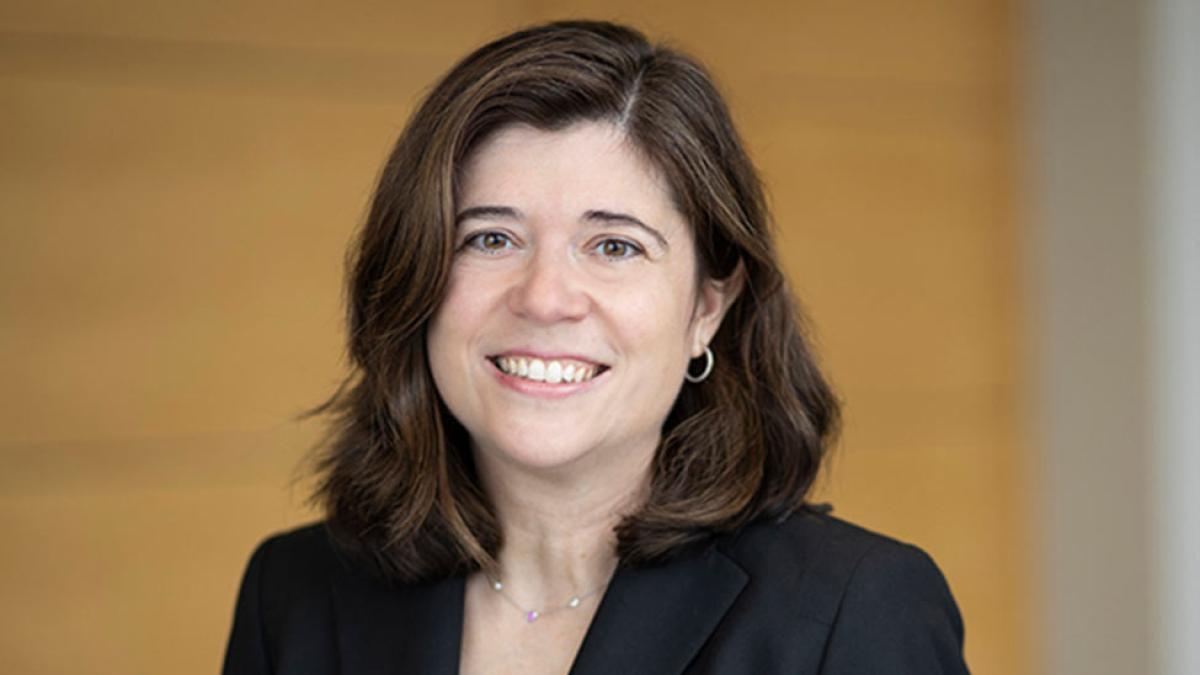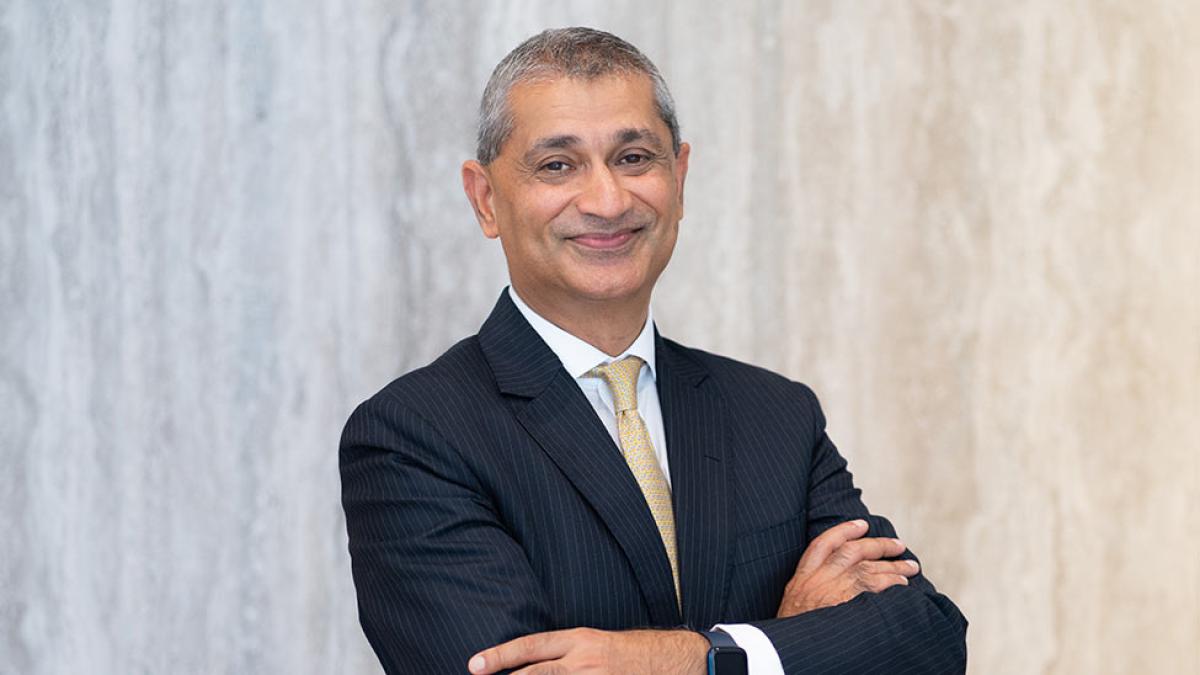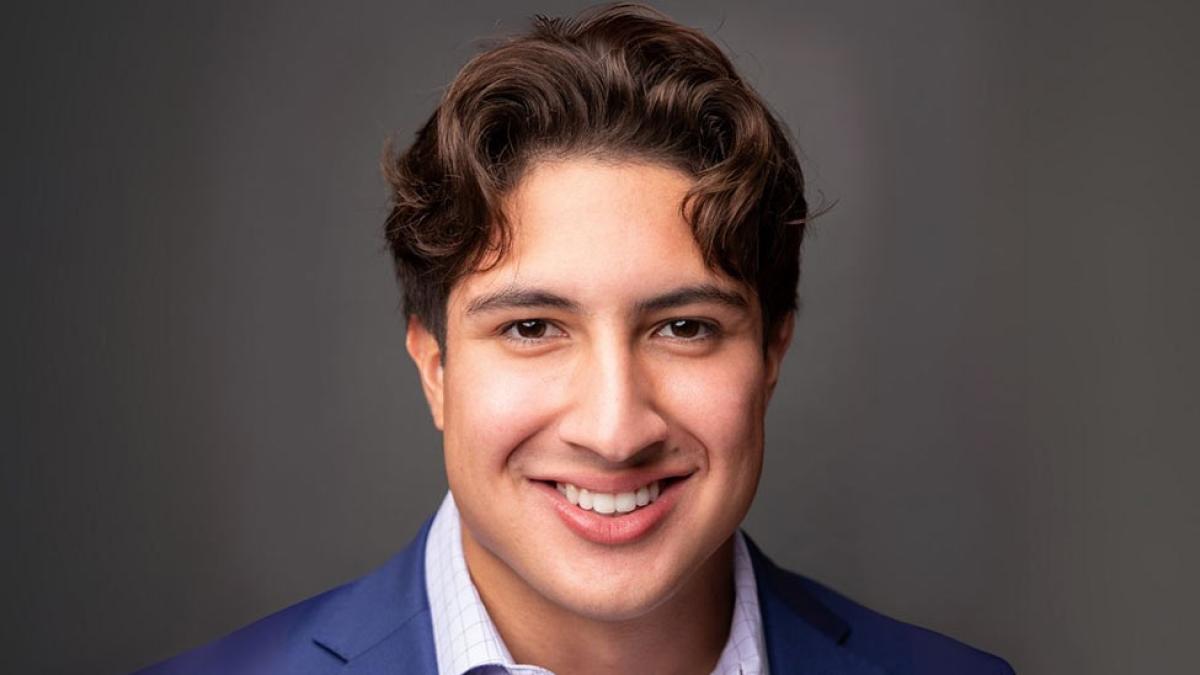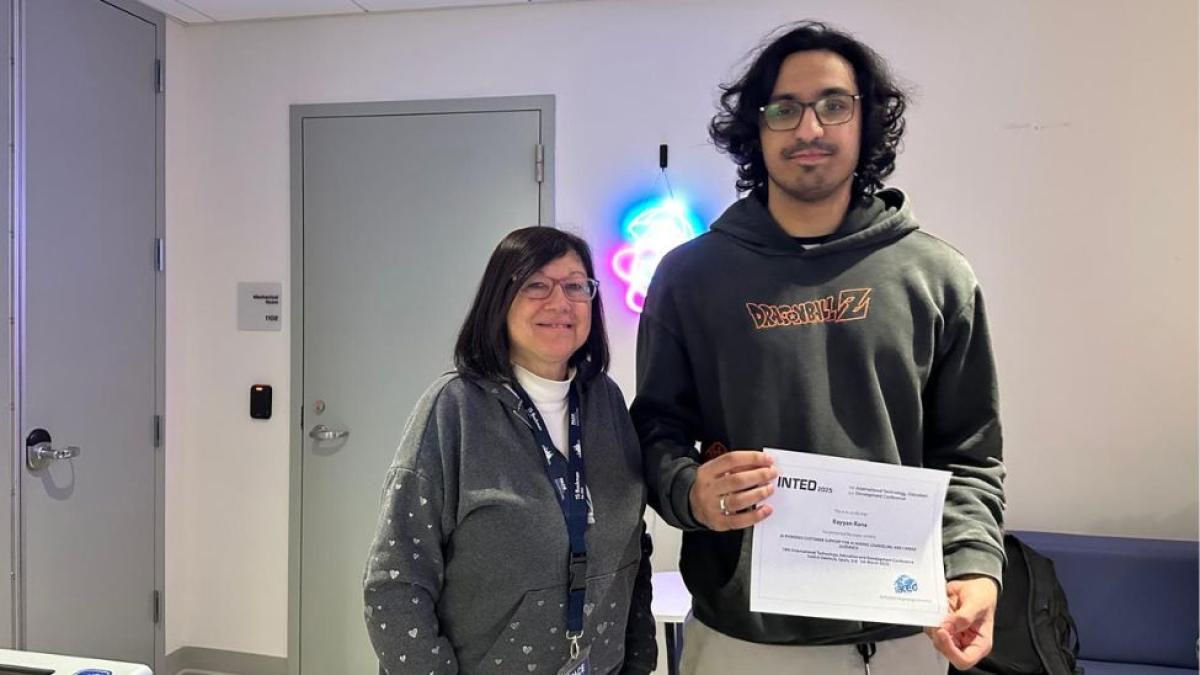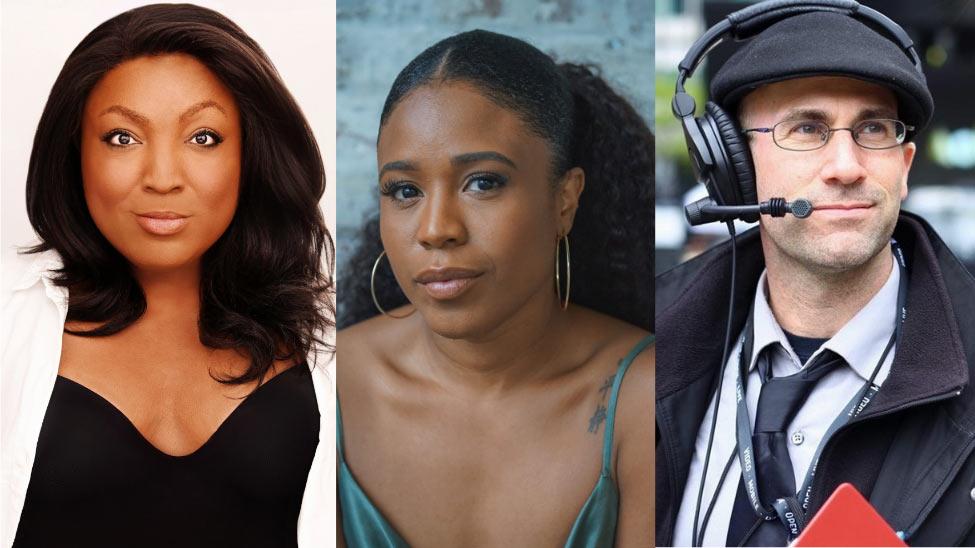
Second Circuit’s NFL Arbitration Ruling Extends to the Boardroom
Pace Haub Law Professor Imre Szalai provides expert commentary to Bloomberg Law regarding the Second Circuit’s recent decision in Flores v. New York Football Giants, Inc., which struck down the NFL’s arbitration provision giving Commissioner Roger Goodell final authority over discrimination disputes. Highlighting why commissioner-controlled arbitration fails in civil rights contexts, Professor Szalai explained: “Goodell would be a perfect decision maker about sports rules, like the notorious Tom Brady ‘Deflategate’ case, but not for a legal claim.”
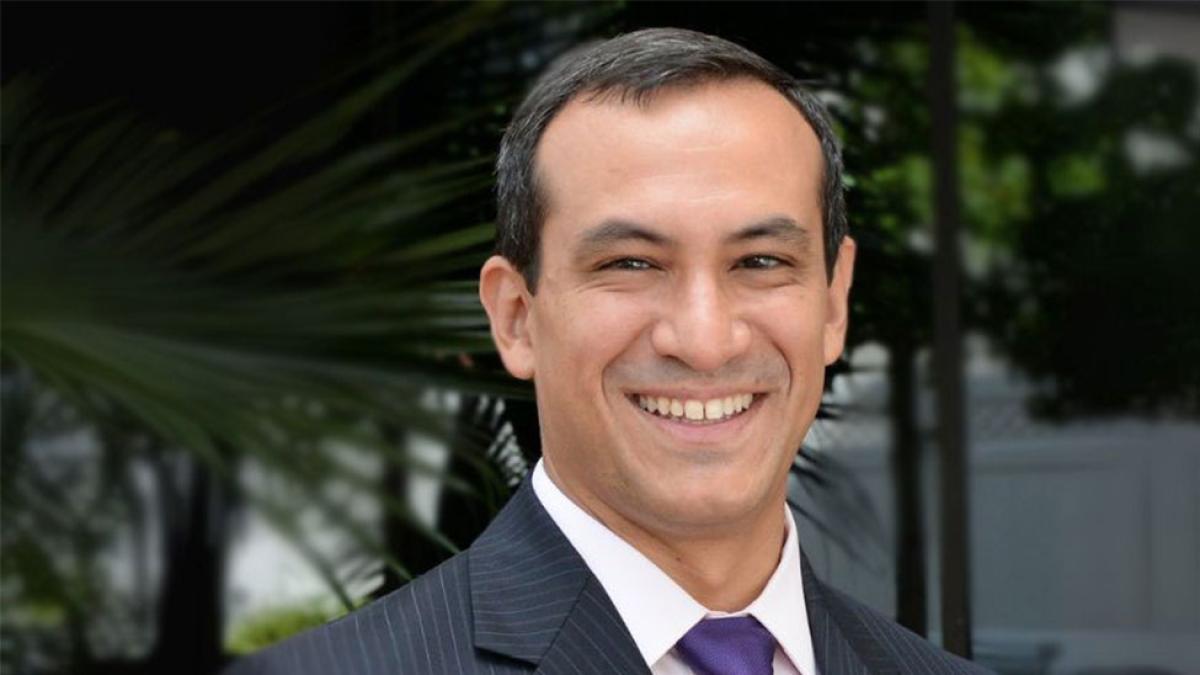
White House Sending Social Media Teams With FBI On Some Arrests In D.C., Sources Say
- Read more about White House Sending Social Media Teams With FBI On Some Arrests In D.C., Sources Say
Elisabeth Haub School of Law Professor Bennett Gershman speaks to Reuters about the reported use of social media teams during FBI arrests in D.C. “It’s an outrageous tactic for promotional purposes,” he said, calling it constitutionally and ethically problematic— the story garners national and international pickup.
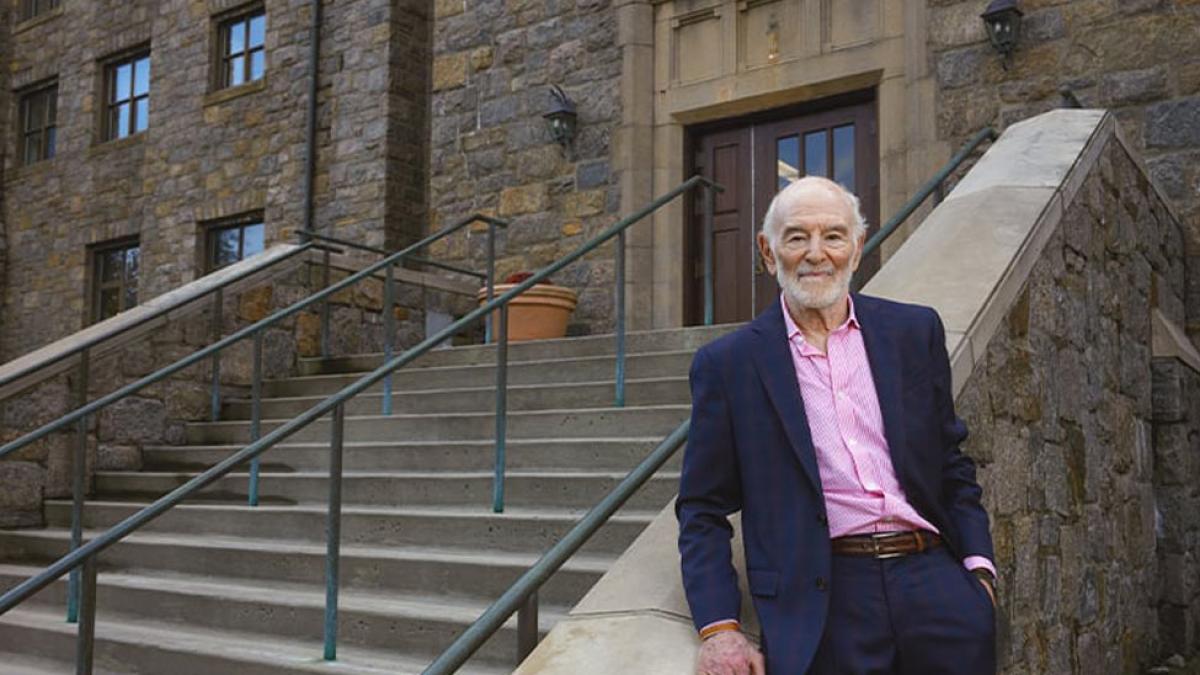
Press Release: Pace University’s Sands College of Performing Arts Welcomes Three Acclaimed New Faculty Members
Pace University’s Sands College of Performing Arts today announced the appointment of three distinguished artists to its faculty for Fall 2025: Tony Award nominee L Morgan Lee as clinical assistant professor of musical theater, Broadway performer Shonica Gooden as clinical assistant professor of commercial dance, and Broadway stage manager Matthew Stern as clinical assistant professor and program head of stage management.

Tony nominee L Morgan Lee, Broadway veteran Shonica Gooden, and renowned stage manager Matthew Stern join faculty this fall

Pace University’s Sands College of Performing Arts today announced the appointment of three distinguished artists to its faculty for Fall 2025: Tony Award nominee L Morgan Lee as clinical assistant professor of musical theater, Broadway performer Shonica Gooden as clinical assistant professor of commercial dance, and Broadway stage manager Matthew Stern as clinical assistant professor and program head of stage management.
“These extraordinary educators bring unparalleled professional experience and a passion for nurturing emerging talent,” said Jennifer Holmes, dean of the Sands College of Performing Arts. “Their artistry, leadership, and commitment to students will further elevate the exceptional training we offer here at Sands.”
The appointments come at a pivotal time for Sands College, which continues to gain national recognition for its programs in acting, directing, musical theater, commercial dance, production and design for stage and screen, and stage management. Sands College is recognized by Playbill as one of the top 10 most represented colleges on Broadway for the 2023–2024 season; named by Backstage.com as one of the top acting colleges you should know; and ranked among The Wrap’s top 20 great schools for acting and theater.
Sands is preparing to open a new state-of-the-art Performing Arts Center as part of Pace’s renovation of One Pace Plaza East and the transformation of its campus in lower Manhattan.
L Morgan Lee
Lee is an award-winning actress, emerging director, writer, and educator. She made history as the first openly trans actor to be nominated for a Tony Award for her standout turn in the Pulitzer Prize–winning A Strange Loop on Broadway. The role also earned her an Obie Award, along with Drama League and Lucille Lortel Award nominations. Her studio work includes The Sugar Maple Series (Osiris Media), Drama: An Aural Experience (AKS Immersive), and recordings with Ghostlight Records, Broadway Records, Sh-K-Boom Records, and the Grammy-nominated A Strange Loop Original Broadway Cast Recording.
As a theatre-maker and educator, Lee brings a distinct and nuanced perspective to storytelling—illuminating identity and the complexities of the human experience through lenses often overlooked. Her writing has appeared in Playwrights Horizons’ Almanac (Vol. 03), When the Lights Are Bright Again, and Musical Theatre Today (Vol. 2). Her short play The Learning Curve was presented in BLISS, the finale of the 2023 Breaking the Binary (BTB) Theatre Festival at The Public Theater and is published by Broadway Licensing. She is a recipient of the Mark O’Donnell Prize and a 2024 HRC Visibility Award.
"We are shaping young artists who may one day become some of the brightest lights on Broadway and beyond,” said Lee. “I'm thrilled for a fuller opportunity to walk alongside them—to help nurture their individual voices, refine their craft, as well as share lessons I've gathered (and continue to learn) from over more than two decades in this industry. Pouring into their artistry is not simply a job; it’s a privilege that I carry with the deepest of respect and gratitude.”
Shonica Gooden
Gooden, a multi-hyphenate artist from Atlanta, is currently a member of the Broadway company of Hamilton: An American Musical (original cast). She has appeared in some of Broadway’s most acclaimed productions, including CATS (Rumpleteazer, Broadway revival), and Bring It On: The Musical (Broadway and First National Tour). Her credits also include Rodgers and Hammerstein’s Cinderella, Memphis (Felicia, Cape Fear Regional Theatre), the national tour of Matilda The Musical, Sister Act (Deloris, Music Theatre Wichita), and Don’t Bother Me, I Can’t Cope (City Center Encores!).
Gooden’s screen appearances include Fosse/Verdon, Manifest, and Almost Family, Ted 2, The First Purge, and The Dutchman. Gooden is also the Executive Artistic Director of The Black Artists Dance Collective (TBADC), a community arts nonprofit organization based in Atlanta, GA. The mission of TBADC is to provide Atlanta's BIPOC Dance Community with resources and opportunities through education and community engagement.
“When I attended the 2025 Senior Dance Showcase, I loved the fact that you could tell that there’s a major value placed on individuality and artists' identity at Sands College,” said Gooden. “Not one dancer is the same. This isn’t a program for cookie cutter dancers, it’s a program for dancers that understand that versatility and sharing your true self through your artistry are the keys to your success in this industry. It excites me to be an educator in a program that champions those values!”
Matthew Stern
Stern is a veteran Broadway stage manager with credits on more than 20 productions, including Come From Away, Finding Neverland, On the Town, Spider-Man: Turn Off the Dark, An Evening with Patti LuPone & Mandy Patinkin, The Little Mermaid, Wicked, The Phantom of the Opera, The Full Monty, and Death of a Salesman. His career also includes the Radio City Christmas Spectacular, Blue Man Group at the Hollywood Bowl, national tours such as John Lithgow’s Stories By Heart, Billy Crystal’s 700 Sundays, Les Misérables, Grease, and In the Fiddler’s House with Itzhak Perlman, as well aswork in dance with Martha Graham Dance Company and Ballet Iowa, and corporate events for global clients in the tech, finance, and auto industries.
Stern is the founder of the Broadway Stage Management Symposium, a professional development platform for stage managers, and serves on the board of The Stage Managers’ Association, USA. He is committed to fostering leadership, collaboration, and creativity in the next generation of stage managers.
“I'm thrilled to work alongside the highly regarded faculty at Pace to help train future generations of artists,” said Stern. “Working with young adults is a great responsibility. As the head of the stage management program at Pace, I welcome the opportunity to educate and support stage managers in their journey to find their voice, develop their aptitude for leadership, and advocate for themselves and the artists they support. I look forward to continuing the great traditions and standards at Pace and instilling valuable leadership qualities for people and organizations to thrive.”
About Pace University
Since 1906, Pace University has been transforming the lives of its diverse students—academically, professionally, and socioeconomically. With campuses in New York City and Westchester County, Pace offers bachelor, master, and doctoral degree programs to 13,600 students in its College of Health Professions, Dyson College of Arts and Sciences, Elisabeth Haub School of Law, Lubin School of Business, Sands College of Performing Arts, School of Education, and Seidenberg School of Computer Science and Information Systems.
About Sands College of Performing Arts
Sands College of Performing Arts is a cutting-edge performing arts school that nurtures artistic innovation and develops future leaders and changemakers in the profession. Renowned for its diverse range of highly-ranked programs, Sands College is committed to cultivating top-talent performers, designers, and production professionals. From Hollywood to Broadway, Sands College students and alumni have appeared in major film and television productions and theater performances such as & Juliet, A Beautiful Noise, A Strange Loop, Almost Famous, Hadestown, Hamilton, Kimberly Akimbo, MJ The Musical, Moulin Rouge, Ohio State Murders, Wicked, and the Radio City Christmas Spectacular. Recognized by Playbill as one of the 10 most represented colleges on Broadway, Sands College continues to inspire the next generation of artists on stage and screen.
Designing Her Path in Digital Marketing
From hands-on client work to behind-the-scenes content shoots, Skye Tchegnon ’28 is turning her first internship into a launchpad for a career in social media marketing and analytics.
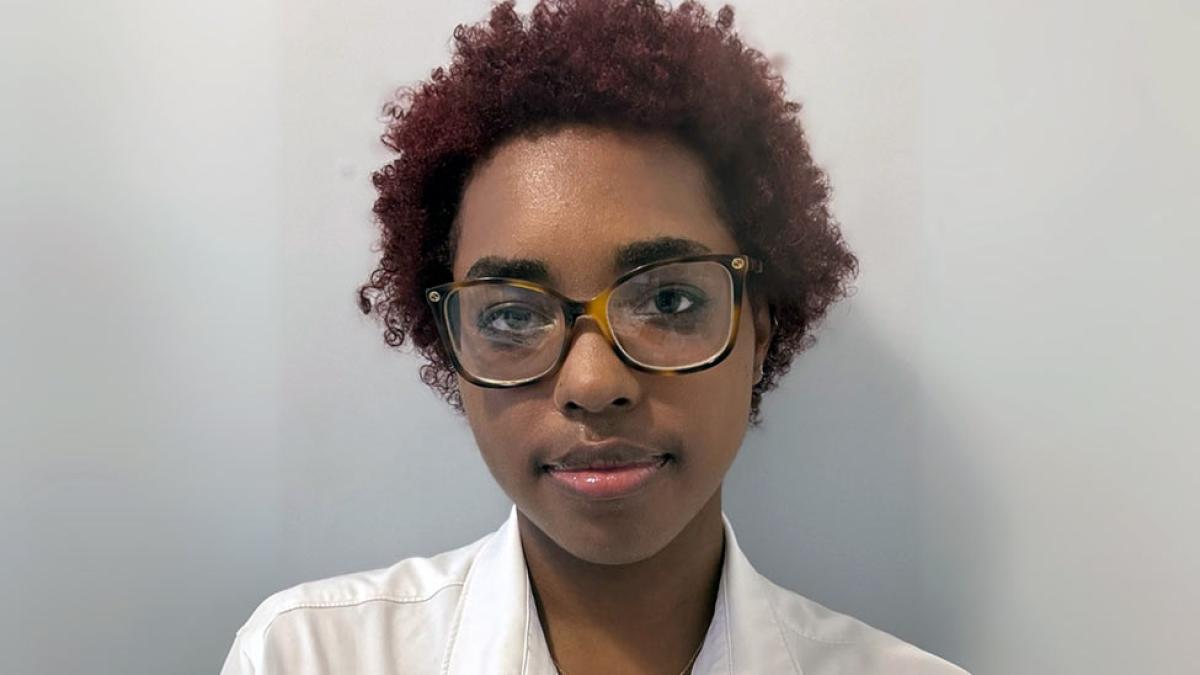
Skye Tchegnon
Class of 2028
Pronouns: she/her/hers
Currently Studying: BBA in Digital Marketing
Current Internship Position: Social Media Marketing Intern
Company: Talbot Media
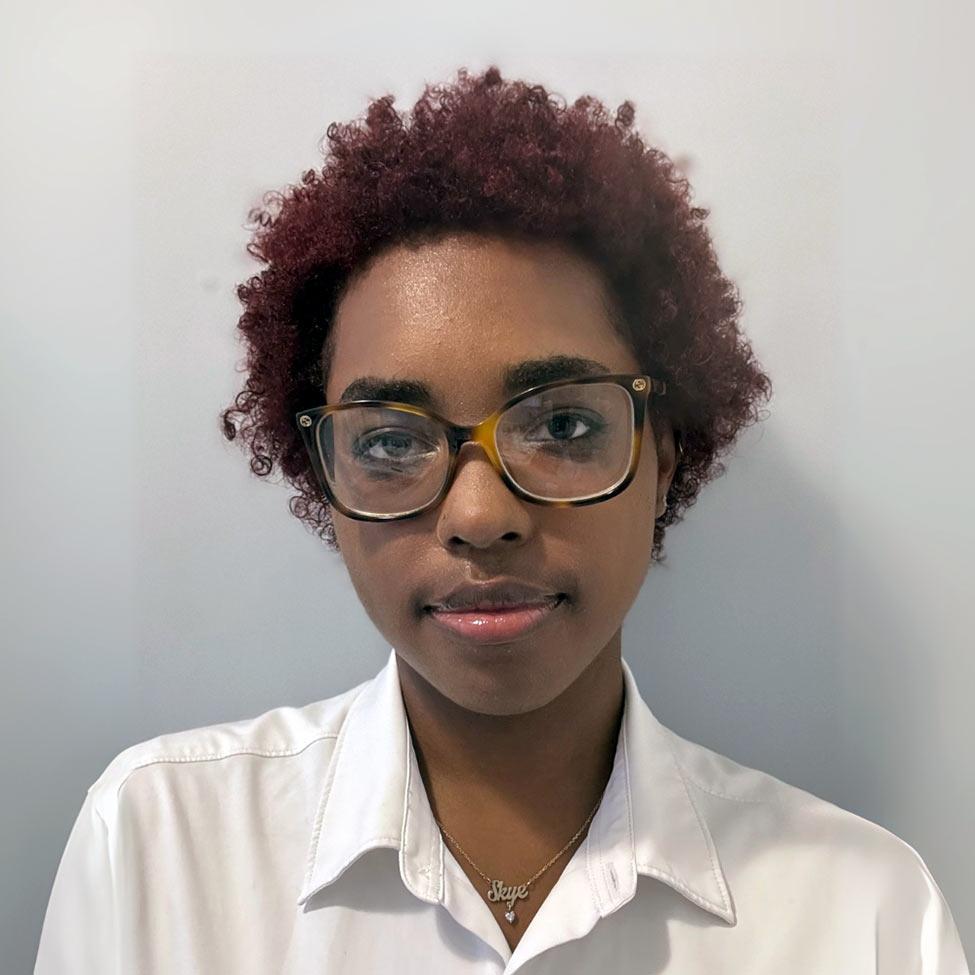
How has the Lubin School of Business helped you prepare for your current internship?
I owe much—if not all—of my preparation to the American Marketing Association for providing opportunities to gain industry knowledge and for hosting professional development workshops. These have included elevator pitching, speed networking, and their Regional Conference.
What attracted you to this internship?
I was drawn to this internship because of the hands-on learning I get from working directly with clients. I was also excited to work with Pace alumni who founded the company. As someone new to the marketing industry and still exploring career options early on, I felt like this was the perfect opportunity to take my first step and find my interests.
As someone new to the marketing industry and still exploring career options early on, I felt like this was the perfect opportunity to take my first step and find my interests.
As someone new to the marketing industry and still exploring career options early on, I felt like this was the perfect opportunity to take my first step and find my interests.
Describe what a typical day look like for you in this role.
I start my day by checking my email and my project management tool to review my tasks. Typical responsibilities include designing carousel posts for a brand, working on content calendars, and creating social media strategies to define unique goals and action steps for a client’s online presence. I end each day by sending my team an end-of-day summary and listing my to-do items for the next workday.
What has been the highlight or most enjoyable aspect of your internship so far?
Interacting directly with clients from different industries and creating behind-the-scenes content during shoot days. One of my shoot days was with a card game, where I was working on set with the clients, their paid actors and my team that helped filmed promotional content for their current card decks and a new product launch!
How has this experience shaped or impacted you career goals?
This experience has solidified my goal of pursuing a career in social media marketing. It has also sparked my interest in analytics, and I’m excited to explore that further. I currently use analytics tools that help create charts or graphs that measure the growth and the overall engagement of the brand.
How do you plan to apply what you’ve learned during this internship to your next semester at Lubin?
In addition to my calendar app, I plan to incorporate project management tools into my workflow for homework and group assignments to stay organized and on track.
Do you have any advice for other Lubin students who are looking to pursue internships in the future?
Take advantage of every event Pace offers—you never know who you’ll meet or how they might change your life. In New York City, somebody always knows somebody.
Connect with Skye Online:
Climate Law Scholar and Practitioner Sam Bookman joins Pace Haub Law as Visiting Assistant Professor and Haub Visiting Scholar
The Elisabeth Haub School of Law at Pace University is pleased to announce that Sam Bookman will be a Visiting Assistant Professor with the Law School for the Fall 2025 semester and he was also selected to serve as a Haub Visiting Scholar. While at Pace Haub Law, he will teach Climate Change Law and Constitutional Law.
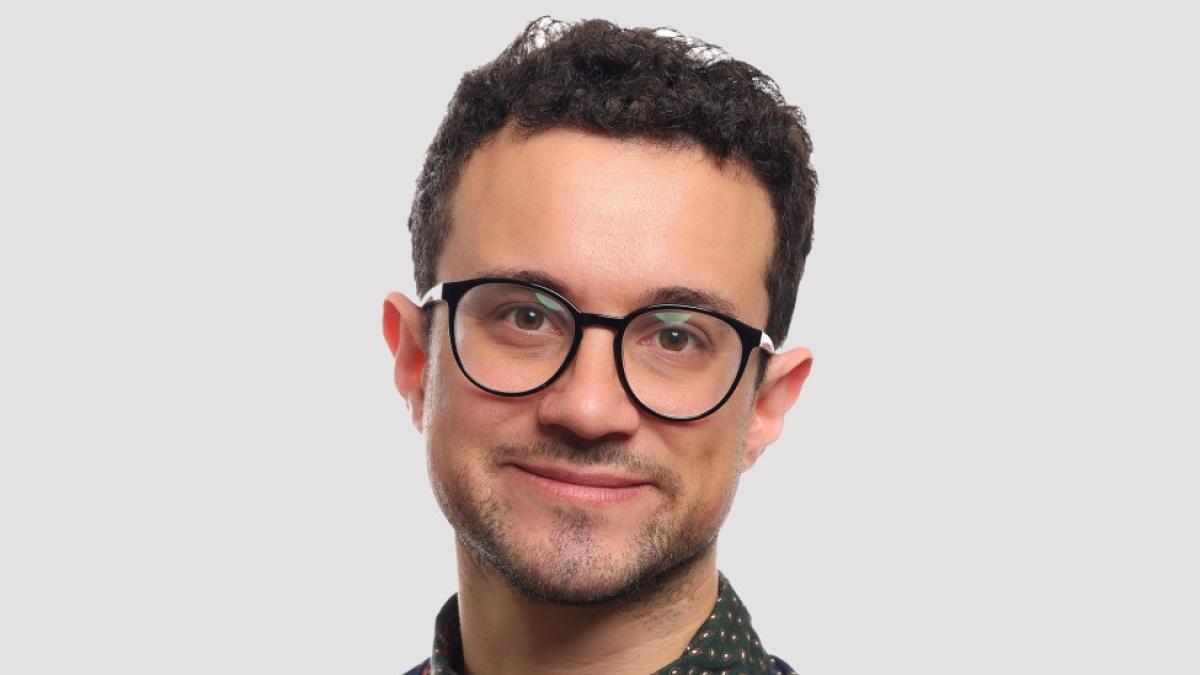
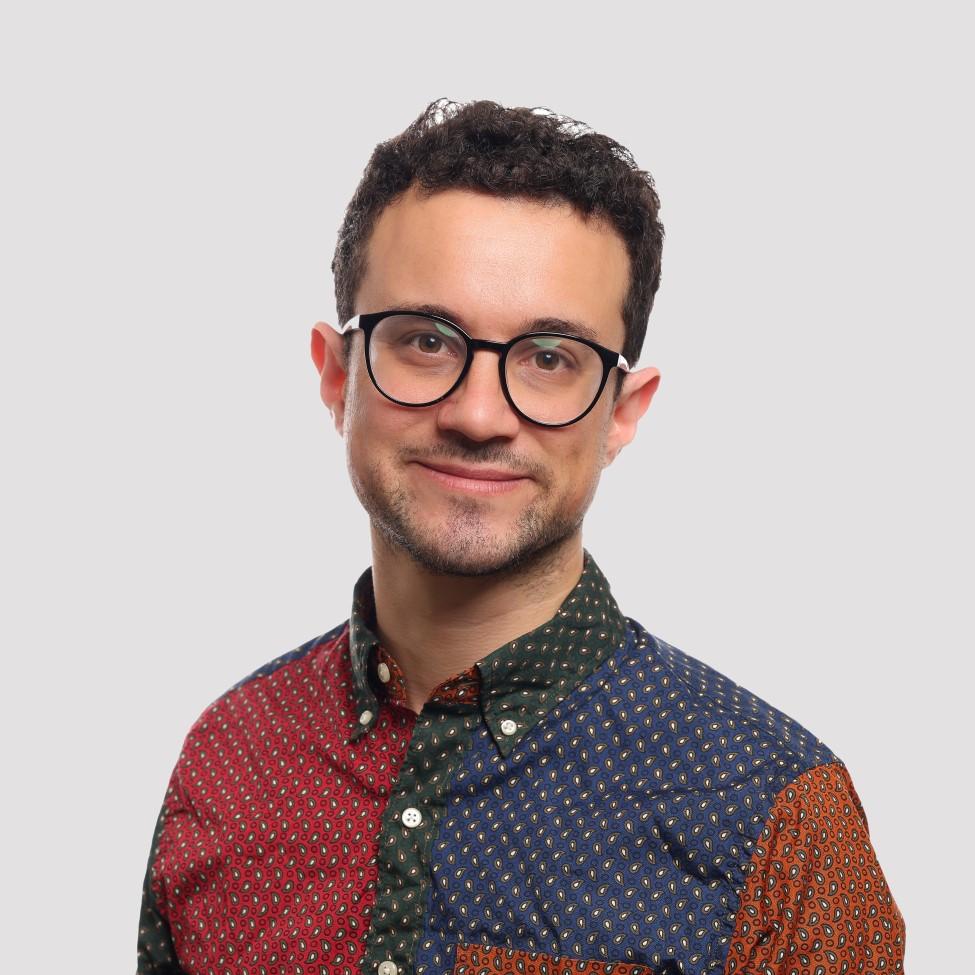
The Elisabeth Haub School of Law at Pace University is pleased to announce that Sam Bookman will be a Visiting Assistant Professor with the Law School for the Fall 2025 semester and he was also selected to serve as a Haub Visiting Scholar. While at Pace Haub Law, he will teach Climate Change Law and Constitutional Law.
Professor Bookman is currently a Postdoctoral Fellow at Harvard’s Project on the Foundations of Private Law. He also works as the Senior Staff Attorney in the Environment Program of the Cyrus R. Vance Center for International Justice, an initiative of the New York City Bar Association. In this role he regularly advises and represents clients before courts and tribunals, and manages complex multijurisdictional legal research. He has taught climate law at several law schools, and has acted for a range of international clients, including several United Nations officers and agencies. His prior teaching or research appointments include NYU, Boston College, and the University of Melbourne. He has also consulted on several projects related to constitutional drafting and design.
“Professor Bookman’s research, scholarship, and teaching brings a unique approach in the areas of climate law, litigation, social movements, and all aspects of environmental rights,” said Elisabeth Haub School of Law at Pace University Dean Horace E. Anderson Jr. “He is an active scholar and brings not only an academic lens to the classroom, but also a practical one, having advised and represented clients before both national and international courts and tribunals. Pace Haub Law is excited for him to bring his expertise to both our classrooms and community.”
Professor Bookman’s work is widely published in prominent national and international law reviews. He has also authored many book chapters, blog posts, and contributed to numerous research reports and collaborations. His work has been published in a wide range of journals, including the Utah Law Review, Modern Law Review, Environmental Law, Oxford Journal of Legal Studies, and Nature Sustainability. His work is also forthcoming in the University of Colorado Law Review and the German Law Journal. Professor Bookman’s academic work and professional research has been cited by the International Court of Justice and Supreme Court of Pakistan. His research explores issues related to constitutional design, climate litigation, and social movements, as well as environmental human and nonhuman rights. He received his SJD from Harvard Law School in 2025.
"I am thrilled to be joining Haub Law as a Visiting Assistant Professor and a Haub Visiting Scholar this fall,” said Professor Bookman. “I am passionate about continuously learning, researching, and teaching, specifically areas that relate to environmental law, constitutional law, and their intersection. The Pace Haub Law Environmental Law Program is comprised of the top faculty, students, and alumni. I look forward to learning from this community and sharing my research.”
In addition to his role as a Visiting Assistant Professor, Professor Bookman will serve as a Haub Visiting Scholar. Haub Visiting Scholars collaborate with faculty, guest lecture classes, and work closely with students in the Environmental Law Program and others. Funding for the Haub Visiting Scholars was made possible by a gift from the Haub family in recognition of the essential role of environmental science, informatics and other technology and allied fields towards formulating environmental policy and law.
"Professor Bookman is a leading scholar on environmental rights and we're excited to have his expertise as we build the Pace New York Environmental Rights Repository, which seeks to support application of the environmental rights added to the New York State Constitution in 2022," shared Faculty Director of the Environmental Law Program and Haub Distinguished Professor of Environmental Law at the Elisabeth Haub School of Law at Pace University, Katrina Fischer Kuh. The Pace New York Environmental Rights Repository provides a resource to advocates, litigators, courts and scholars seeking to interpret, apply, and understand Article I section 19. It houses documents relating to the amendment’s legislative history; briefs and decisions in cases implicating the Article I, section 19; materials shedding light on the public context in which the amendment was adopted; and relevant legal scholarship.
Call for Proposals: Social Justice Week 2025
Want to host an event during Pace’s sixth annual Social Justice Week? Apply by Friday, September 26. Read the article to learn more about the origins of Social Justice Week and how to get involved.


Pace’s sixth annual Social Justice Week is taking place the week of October 26. This week of learning and reflection is designed to offer an ongoing memorial for Pace student Danroy “DJ” Henry, and to further commit Pace University to social justice and anti-racism.

A community-driven effort, the week aims to offer original programming that adheres to values of equity and justice and engages the campus community in learning activities and dialogue centered on the issues of social justice. Social Justice Week seeks to create brave spaces that challenge white supremacy among other forms of oppression and to create a starting point from which meaningful dialogue and action can be created for the entire Pace Community.
Get Involved!
This week consists of events hosted by the Pace Community, including students, staff, faculty, departments, and student organizations across the three Pace campuses. If you are interested in hosting an event, you can learn more and apply here. The deadline to apply is September 26. If you would like to be considered for funding for your event, please apply by September 22.
If you have any questions or would like more information, please email socialjusticeweek@pace.edu.
More from Pace
After an extensive nationwide search, Pace University today announced the appointment of Ajay Khorana, Ph.D., as Dean of the Lubin School of Business and professor of finance, effective September 1, 2025.
From deal analysis to networking, Christian Valerio ’27 dives into private equity at Court Square, shaping his path in finance.
Mary Tedeschi, professor at Pace University’s Seidenberg School, spent much of 2025 doing what she does best: teaching her students and guiding them through research to such a level that they presented their papers at two prestigious international virtual education conferences.
Unchecked Proselytizing Can Trigger Workplace Harassment Claims
In Bloomberg Law, Elisabeth Haub School of Law Professor Emily Gold Waldman cautioned that new federal guidance promoting religious expression in the workplace could foster coercive dynamics—particularly between supervisors and employees—and lacks adequate safeguards to prevent pressure or retaliation.
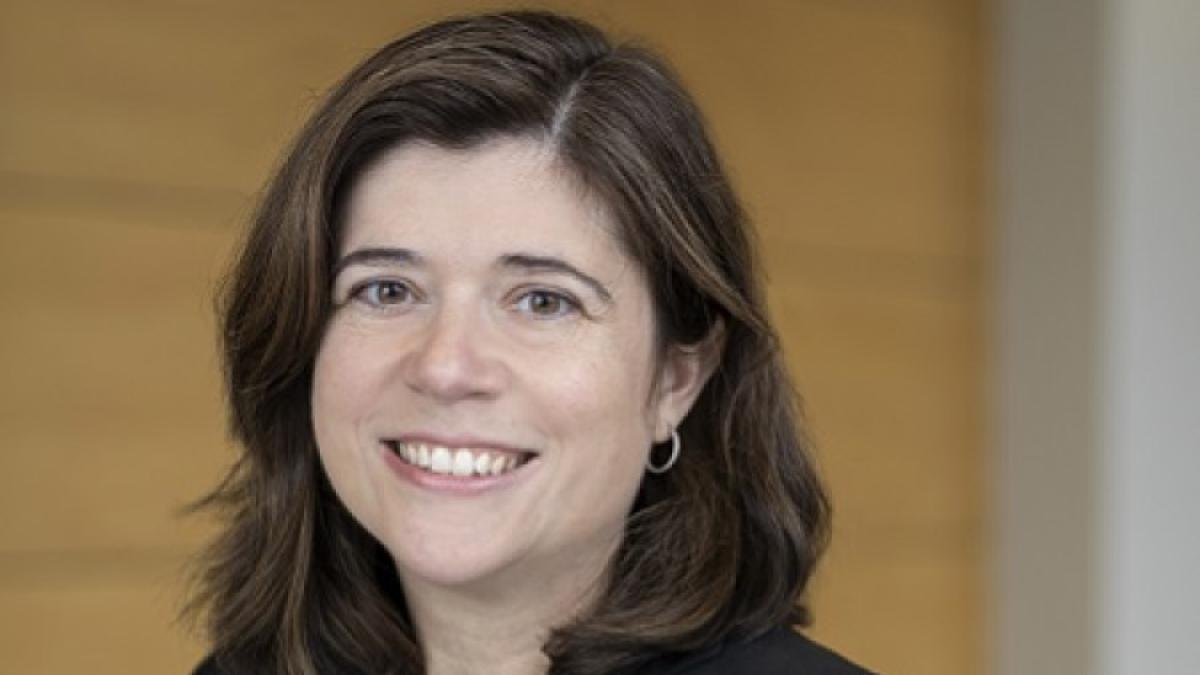
Pace University Names Former Citi Executive As Dean Of Lubin School Of Business
Pace University recently named Ajay Khorana, Ph.D., as the next Dean of the Lubin School of Business, effective September 1. Dean Khorana previously served as Global Treasurer for the U.S. Personal Banking and Global Wealth businesses at Citigroup.
Menopause At Work: How Leaders Can Provide Support In The Workplace
Elisabeth Haub School of Law Professor Emily Gold Waldman speaks to Forbes about the legal gap around menopause in the workplace, noting that while no federal law mandates accommodations, agencies like the EEOC could issue guidance treating menopause-based bias as a form of sex or age discrimination.
